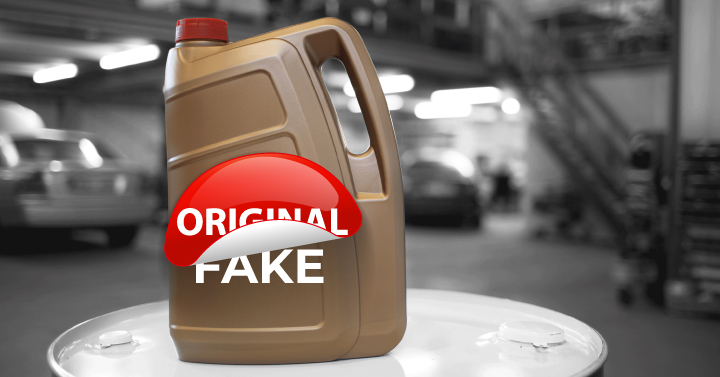When the world shifted to e-commerce during the COVID-19 pandemic, manufacturers of counterfeit lubricants similarly took to the electronic superhighway. Along the way, they began appreciating both the many “rest stops” — giants like Amazon and eBay are lined with scenic unregulated third-party vendors — and their ability to reach a wider clientele.
“As a result, counterfeits now account for approximately 10% of total lubricant sales globally,” says Satyan Gupta, director of our KMC Energy Practice. “Passenger car motor oil, heavy-duty motor oil, motorcycle oil, grease, metalworking fluids, hydraulic fluids, and industrial engine oil are all prime targets, with premium and fast-moving products and brands hit the hardest.”
According to Gupta, lubricant counterfeiters prefer to capitalize on expensive products packed and sold in compact packages and drums, as it’s simpler for them to repack and sell the products in small quantities. Further, it is simpler for counterfeiters to proliferate via the indirect channel – where the route to market encounters multiple stakeholders. “That’s why lube counterfeiters are more prevalent in the automotive segment compared to industrial,” says Gupta.
TRICKS OF THE TRADE
The most common approach for counterfeiters is to use the original packaging and replace all, or a portion, of the contents with an inferior-quality product. The packaging is then resealed with a new cap that includes a tamper-evident band or security ring.
Some counterfeiters will use the labels of expensive brands to sell recycled products. Others have been known to manufacture new labels and packs and refill the containers with inferior products; according to Gupta, there have, in fact, been “double-agent” printers that have worked for both legitimate companies and the counterfeiters on the same product. Other tricks include using look-alike packaging bearing similar logos, trademarks, and color schemes to deceive the consumer. Some counterfeiters have even gone so far as to invent new products that never existed under the original brand.
TRICKS OF THE TRICKED
While staying ahead of the crooks has always been challenging, never before has it seemed so impossible. The massive global shift to e-commerce this past year due to COVID-19 resulted in markets flooded with undetectable fakes. All is not lost, however. Governments around the world are working to enact strict anti-counterfeit legislations. Supply-chain processes are being overhauled with an eye toward making them impregnable. And, manufacturers are incorporating cutting-edge anti-counterfeit technologies into packaging, including radiofrequency identification (RFID) tags equipped with microchips, barcodes, security seals, smart labels, holograms, mass encoding, and digital encryption and serialization. Further, cloud-based services already exist that offer smartphone authentication capabilities. Consumers will just need to unholster their phones in order to get the bad guys.
Kline has been following lubricant sales trends in the e-commerce space – tracking the evolution of the ecosystem – with a focus on key platforms, product sales analysis for both B2B and B2C channels, competitive landscape, opportunities, and growth outlook in select regional markets. Further, profiles of China, India, Indonesia, the Philippines, and Malaysia — some of the key markets where lubricant counterfeiting thrives — have already been published as part of our Global Lubricants report. Now in its 19th edition, the study provides profiles of 17 country markets with a detailed, independent appraisal of the finished automotive and industrial lubricants industry in each country. Information on all key suppliers is also included, as is the impact of COVID-19 and the shift in long-term trends. In addition, our Counterfeit Lubricants in Asia white paper, which was written for the Asian Lubricants Industry Association (ALIA) and its members, is available upon request.
About this blog:
Double Agents and Deceit: How Lubricant Counterfeiters Are Duping Consumers features insights from Satyan Gupta, a Director with Kline & Company. He is based in Kline’s Delhi office and focuses on our energy practice. Gupta has more than 13 years of experience in management consulting in areas such as new market entry and feasibility, channel and customer acquisition strategy, market-opportunity mapping, and price and sustainability analysis. Prior to joining Kline, he worked in the Natural Gas industry as a technical-commercial consultant.
Press inquiries:
Lance Debler
Content Marketing Manager
Kline & Company
+1-973-435-3425
Lance.Debler@klinegroup.com

